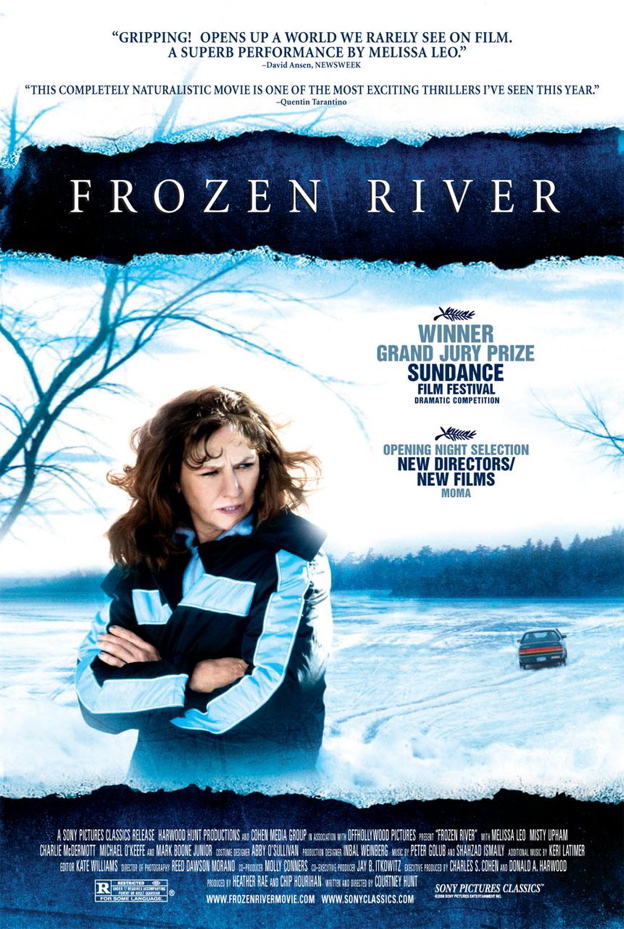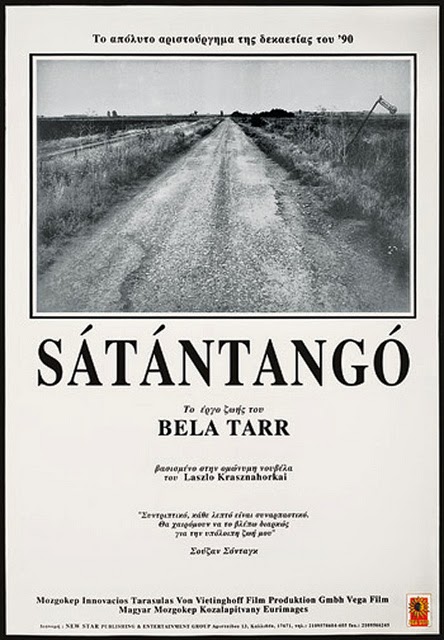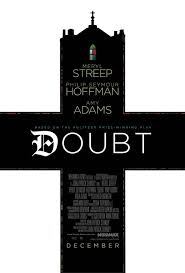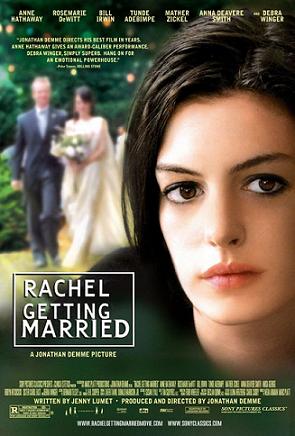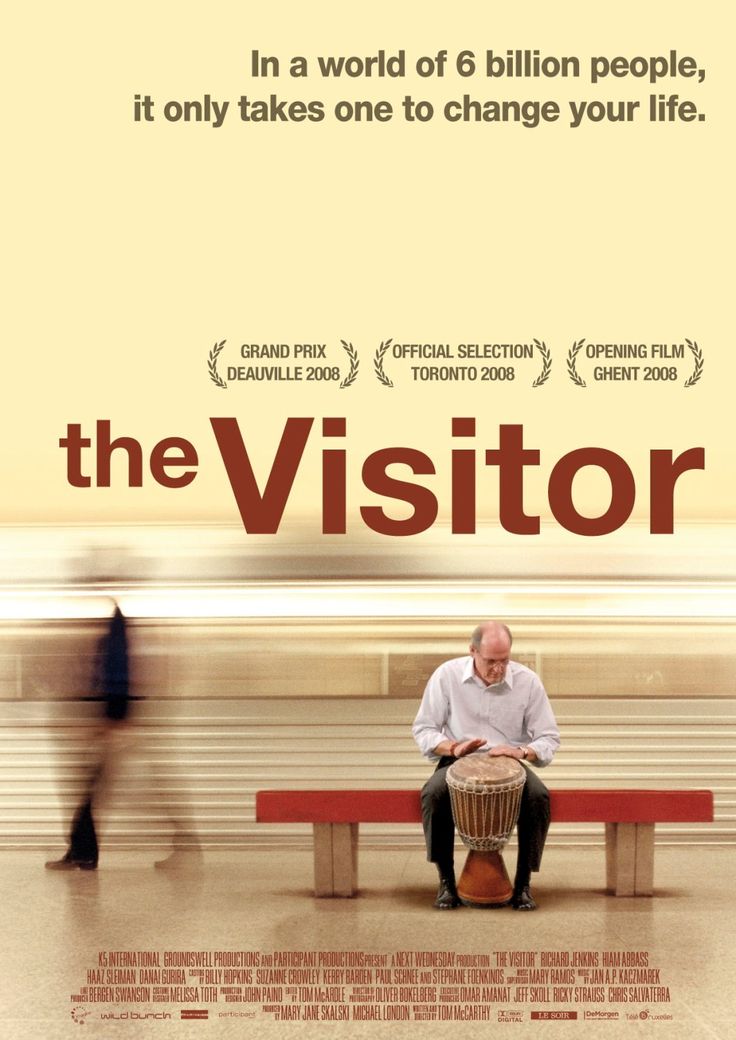‘Frozen River’ puts desperate
human beings on thin ice
“The Grapes of Wrath” was about the poor, specifically Midwestern farmers. That movie is from 1940, when the standards for media depiction of the poor were different.
The people in “Grapes” were hardy, rugged, prideful. They were representative of an era when even the non-wealthy wore suits and top hats to baseball games.
They did not look or talk like the people of “Roseanne,” or “Jerry Springer.”
“Frozen River” is a stirring film that brings the Joad family into the 21st century. These characters watch a TV on loan from Rent-A-Center, they buy maybe $3 of gasoline at a time, they look forward to buying things at Kmart.
What you do not see are welfare checks. Or social workers. Or excuses.
Melissa Leo, as single parent Ray Eddy, is given a rather conventional movie problem: She needs money now, and has very few means to get it.
Very early, we see Ray changing clothes in her bedroom, and we are not the least bit surprised by the way she looks. Several tattoos, mismatched lingerie. This is not someone who enjoys caviar on Friday nights or has season tickets to the opera.
She does have a problem, and “Frozen” is not the first film to steer such a character into dubious or dangerous circumstances. Characters motivated strictly to make a few dollars are always trouble. Consider Bud Fox in “Wall Street,” or Matt Damon’s Mike McDermott in “Rounders,” although McDermott’s motivation is to help a friend and he is ultimately vindicated by finding himself. Certainly the movies are good for teaching us that short-term financial fixes never work.
Ray is probably not highly educated. But like many in tough neighborhoods, there is something she “gets” about life that isn’t taught in the Ivy League.
She knows what people are like, what they do, what they respond to. She is suspicious of her missing husband, and it is not at all a surprise when those suspicions are gradually confirmed in a fast-moving series of events seamlessly handled by writer/director Courtney Hunt.
She is desperate, but hardly value-less. We admire Ray when she is suddenly confronted with a pair of Pakistanis. Though in serious need of cash, she has greater concerns about the gravity of what she is doing, to the point she will interrupt the operation. When it is made clear she has erred in her judgment, her reaction is again admirable, at the risk of being caught.
Hunt, an Ivy Leaguer herself who was raised by a single mother, and Leo masterfully pull off a crucial early scene. Ray visits a bingo parlor, only to soon find herself dealing with bad people, and her reaction is not surprising — but unexpected nonetheless. We see parallels with Maria Alvarez in “Maria, Full of Grace,” who it might accurately be said is too young to challenge people the way she does. Not Ray. She is a mother, and she is poor, and in some way she is fighting for her own survival.
American Indians have been a movie fascination since Thomas Edison invented the motion picture. Ray’s story would be compelling in a conventional neighborhood with a conventional scheme. Hunt, though, puts the story in the unfamiliar terrain of protected Mohawk reservation land. While Hunt devoted many years to observing the Mohawk, this setting allows her to take significant artistic license. There is no reason to doubt the laws and explanations cited by the Mohawk characters. But some may be invented for dramatic effect, and that is OK — no one outside the reservation knows anyway.
While Ray is living on the precipice of disaster, her sons are in another world — of boredom. Her oldest (15) is not yet allowed to work, and her youngest has nothing to play with. These are good kids, and we know why — Ray won’t let them be anything but.
But part of the deal is that the older boy, T.J., must baby-sit his brother, and we see the elevation of roles — Ray must assume the breadwinner duties of her husband, and now her oldest son must assume her previous responsibilities as caretaker. In sports they would say that a key player is out, and everyone else must step up.
Eventually a parallel will occur as T.J. will commit an infraction for similar reasons as Ray. The person above him in the food chain has not adequately responded to the person he’s responsible for, so he takes action on his own. The repercussion here is maybe a bit quaint, but a likable scene — these are poor people, but there is pride here, and this is one 15-year-old whose word means something.
Where Leo is perhaps not pitch-perfect is in her sophistication. Her appearance and actions are 100 percent believable, but the manner in which she speaks and thinks is indicative of a person not native to this environment. She may not be highly educated but surely she would be a decently compensated store manager somewhere, a well-paid administrative assistant, a court reporter, a medical professional, someone who would be comfortable working in a professional atmosphere. At one point a supervisor says, honestly, she seems like a “short-timer,” and you wonder about her plans for life if the husband thing had worked out a little better.
It can also be argued, successfully, that too many plot twists exist in this 96-minute film. There is maybe one too many trips across the ice than is needed (and, one wonders, how do they smuggle in the summertime?), and the result is a small dilution of the dramatic impact of each close call. There is probably a bit of overload in introducing some of the contraband as sympathetic characters with their own limited backstory. These people have their own lives and own decisions that are probably best suited for their own movie.
This movie belongs to Ray, and T.J., who may eat popcorn and Tang for dinner but are not going to starve to death. They might get their new home, but this is not going to be a “Roseanne” type of regular existence. Ray is in the deep end of life’s river, and it’s forever going to be sink or swim, she is not one to tread water. “Frozen” is a story of desperation and pride, told from the underbelly of life, but Ray’s situation is one many of us know all too well. We wish her luck.
4 stars
(February 2009)
“Frozen River” (2008)
Starring Melissa Leo as Ray Eddy ♦ Misty Upham as Lila ♦ Michael O’Keefe as Trooper Finnerty ♦ Mark Boone Junior as Jacques Bruno ♦ Charlie McDermott as T.J. ♦ James Reilly as Ricky ♦ Dylan Carusona as Jimmy ♦ Jay Klaitz as Guy Versailles ♦ Michael Sky as Billy Three Rivers ♦ John Canoe as Bernie Littlewolf ♦ Nancy Wu as Chen Li - Chinese Girl ♦ Pun Bandhu as Chinese Man #1 ♦ Rajesh Bose as Pakistani Father ♦ Joey Chanlin as Chinese Trafficker ♦ Thahnhahténhtha Gilbert as Little Jake ♦ Adam Lukens as Mitch ♦ Betty Ouyang as Li Wei - Chinese Girl ♦ Craig Shilowich as Matt ♦ Gargi Shinde as Pakistani Mother
Directed by: Courtney Hunt
Written by: Courtney Hunt
Producer: Chip Hourihan
Producer: Heather Rae
Co-producer: Molly Conners
Associate producer: Jenny Evans
Associate producer: Alfonso Trinidad
Assistant producer: Laura Mehlhaff
Assistant producer: Craig Shilowich
Executive producer: Charles S. Cohen
Executive producer: Donald Harwood
Co-executive producer: Jay B. Itkowitz
Original music: Peter Golub, Shahzad Ismaily
Cinematography: Reed Morano
Editing: Kate Williams
Production design: Inbal Weinberg
Art direction: Brian Rzepka
Set decoration: Jasmine E. Ballou
Costume design: Abby O’Sullivan
Unit production manager: Anne Marie Dentici
Post-production supervisor: John Eremic
Makeup: Crystal Shade, Lindsey Novotny, Brittany Leborgne
Stunts: Tim Garris, Alex Kerwin
Special thanks: Matthew Dixon
